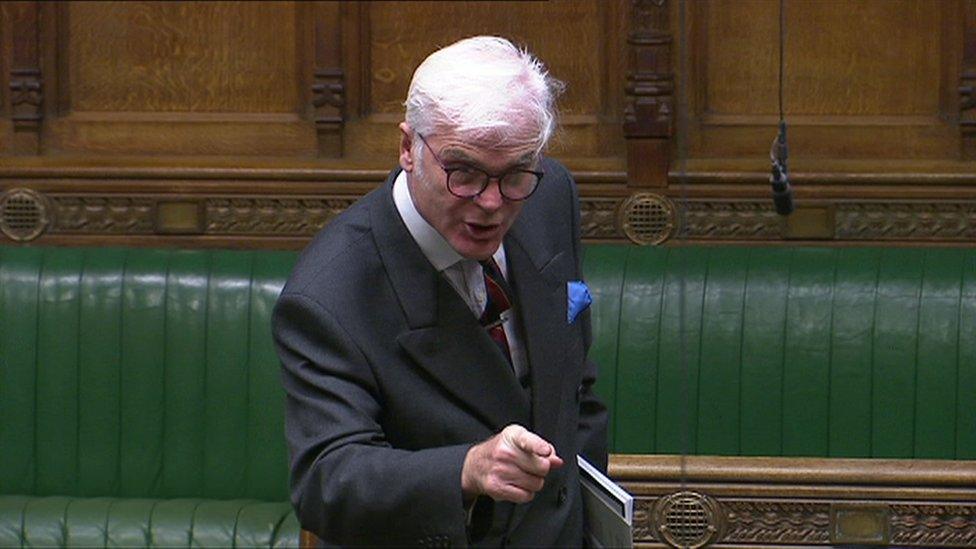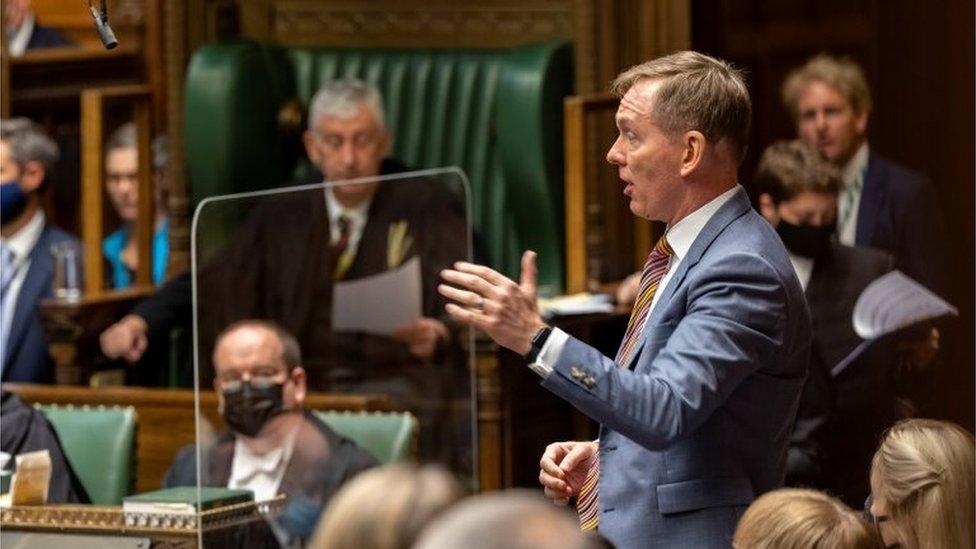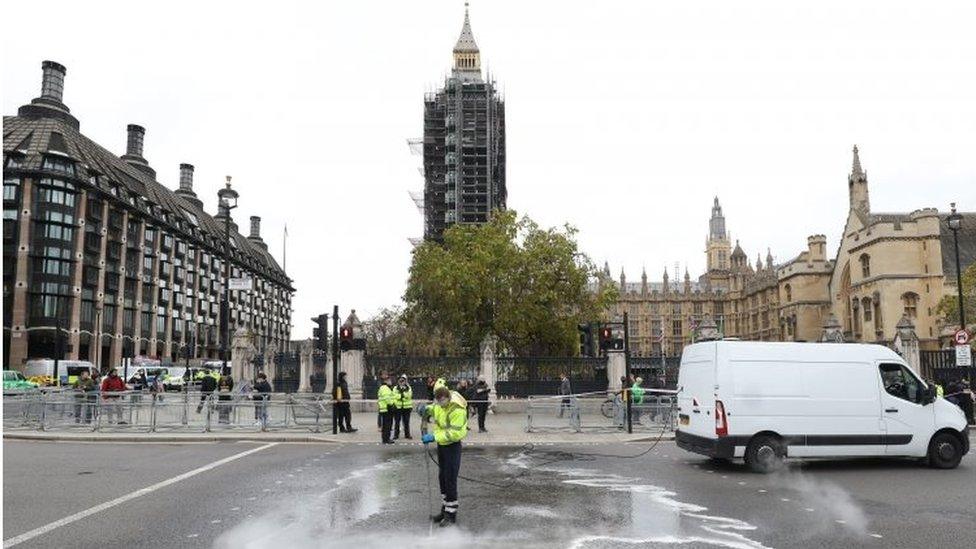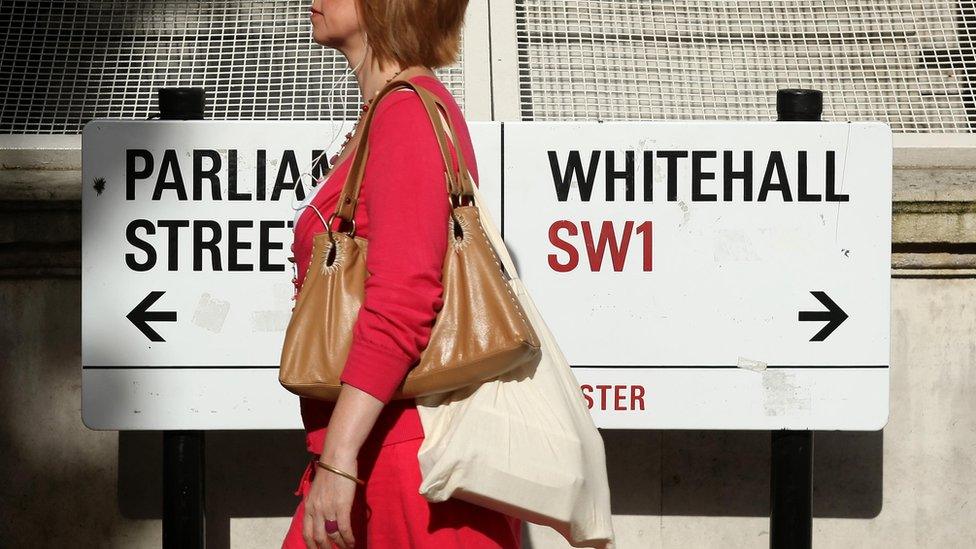Voters have right to elect a misogynist or racist, says MP Swayne
- Published

Sir Desmond Swayne makes his point in the House of Commons
A Conservative MP has spoken up for the right of voters to elect racists or misogynists if that is who they want to represent them.
Sir Desmond Swayne said he hoped his constituents would never make such a choice, but it would be anti-democratic to police MPs' views.
It comes after the standards committee suggested MPs should "demonstrate anti-discriminatory attitudes".
The committee is drawing up proposals for a new code of conduct for MPs.
It has stressed that its recommendations are only in draft form at this stage and that it would consult further before publishing a final set of proposals for MPs to debate and vote on - expected around Easter 2022.
The suggestions included a proposal that "respect" should be added to the principles of conduct and that MPs should "demonstrate anti-discriminatory attitudes and behaviours through the promotion of anti-racism, inclusion and diversity".
Sir Desmond said he was concerned this would give an official "jurisdiction" over what happens in Parliament.
"And indeed the principle of democracy is undermined by the requirement that we may be required to subscribe to behaviours to promote certain attitudes," he added.
"I hope that my constituents never elect a racist or a misogynist, but they have a right to do so."
The committee's report says MPs would only be investigated if they breached the rules, rather than the general principles of conduct.
A Downing Street spokesman said Boris Johnson had not seen Sir Desmond's comments but the prime minister had previously said "there was no place for racism whatsoever in our society and that remains his position".

Labour's Chris Bryant chairs the standards committee for MPs
The committee's report also said MPs should be prohibited from making "unreasonable and excessive personal attacks on social media, in person or in writing".
Another Conservative MP, Mark Francois, expressed concern about this proposal, arguing it could limit an MP's ability to scrutinise a witness at a committee hearing, or to engage in robust debate with other MPs.
Mr Francois described the idea as "dangerous" adding that it "shouldn't appear in the final version" of the recommendations.
Labour's Chris Bryant, who chairs the standards committee, replied: "Maybe the rule isn't perfectly worded... It just seems odd to argue that we have the right to make personal and excessive attacks on others."
The report's other recommendations included asking MPs taking on a second job to make clear in a written contract that they could not lobby ministers or public officials.
Last month, the case of Owen Paterson prompted concern over MPs' conduct.
Mr Paterson was found to have broken standard rules for MPs by working as a paid lobbyist - something he denies. He later resigned after a government attempt to intervene in his case failed.
Related topics
- Published29 November 2021

- Published1 November 2021
